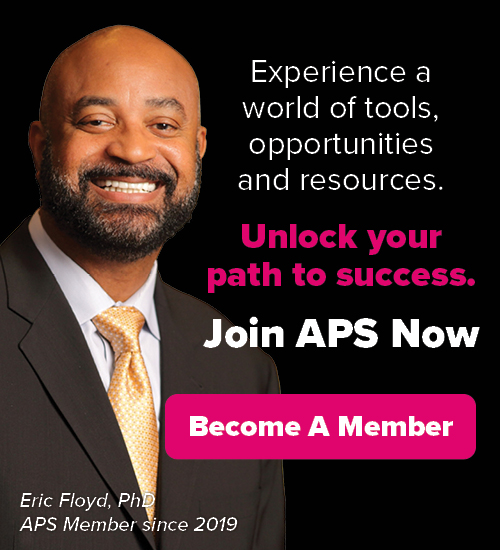- Membership & Community
-
Publications & News
- Physiology Journals
-
Newsroom
-
The Physiologist Magazine
- 2019
- 2020
- 2021
- 2022
- 2023
- 2024
- In Depth
-
Mentoring Forum
- Net Worth
- Take Care
- You … In Charge
- Work. It. Out.
- Working Off-site
- Location, Location, Location?
- Student Support
- Progressing to Postdoc
- Relationship Building
- Let’s Get It Started
- What Do We Value?
- It’s a Postdoc Life
- Coronavirus Contributions
- Creative Communications
- Selection Process
- Conference Connections
- Postdoc Appreciation
- Research Rewards
- Focus on Teaching
- Industry Insights
- Balance Beam
- Post Postdoc
- If You Build It
- Talk It Through
- Forward Bound
- I’ve Earned My PhD. Now What?
- University Life
- Tips for Trainees
- Time Travel
- Prepare Now for the Career You Want
- Landing a Postdoctoral Researcher Position
- Becoming a Physician-Scientist
- Mastering the Art of Science Communication
- Setting Yourself Up for Success in the Lab
- From Postdoc to Professor: Key Strategies for Success
-
Policy IQ
- Policy IQ—2023 in Review: How APS Advocated on Behalf of Physiologists
- Policy IQ—Supporting Equitable Research
- NIH's Road Map to a Better Postdoc Experience
- The Career Path to Science Advocacy
- Culture of Safety: Stopping Sexual Misconduct
- Physiologists Return to Capitol Hill
- Tips for Scientists to Communicate about Animal Research
- Science Advocacy in a New Political Landscape
-
Publish with Polish
- Publish with Polish
- The Layers of Open Science
- Take Your Content From Meeting to Manuscript
- APS Journals to Highlight Women’s Health Research
- What Subscribe to Open Means for APS Members
- The 5 Pillars of Publish with Purpose
- 3 Types of Metadata Researchers Should Know About
- Navigating Open Access and New Licensing Options
- Under the Microscope
- Mentoring Q&A
- Evolution
- Baseline by Scott Steen, CAE, FASAE
- 2025
- Find Us on Social Media
-
The Physiologist Magazine
-
Professional Development
-
Meetings & Events
-
American Physiology Summit
- #APS2024 Overview
- Abstracts
- Awards at the Summit
- Award Lectures
- Career Networking Lunch Form
- Dates and Deadlines
- Advocate for Health Research Funding
- Hotel Information
- Industry Partners
- Keynote Speaker—James Rothman, PhD
- Keynote Speaker—George Brooks, PhD, FAPS
- Keynote Speaker—Holly Ingraham, PhD
- Mobile App
- NIH and NSF Program Officer Panel Discussion Form
- Physical Poster Information
- PhysioHub
- Pre-Summit Events
- Registration
- Section & Group Banquet Tickets
- Social Events
- Speaker Audiovisual Instructions
- Summit FAQs
- Summit Newsroom
- Undergraduate Program Book
- Travel & Transportation
- Liability Waiver
- Industry Partners
- Martin Frank Diversity Travel Award Orientation Agenda
- Martin Frank Diversity Travel Award Networking Luncheon Agenda
- Women in Physiology Networking Event Agenda
-
2023
- APS 2023 Call for Proposals
- Shocklogic Test
- Team 2023 Task Force
- Shaping the Summit
- Schedule at a Glance
- Pre-Summit Events
- Pre-Summit Center for Physiology Education Workshop Registration
- Section & Groups Banquet Tickets
- Pre-Summit Center for Physiology Education Workshop
- Press Registration
- Meet the Organizers
- Keynote Speaker—Terrie Williams, PhD
- Keynote Speaker—David Julius, PhD
- Industry Workshop Information
- Important Dates and Deadlines
- Hotel Information
- Distinguished Lecturers
- Building APS 2023
- Awards at the Summit
- American Physiology Summit Program
- 2024
- Scientific Integrity Policy
- 2026 American Physiology Summit
- Joseph Erlanger: Pioneering Nerve Research and APS Leadership
- Information for International Travelers
- From Concept to Classroom
- New Trends in Sex Differences and Women’s Health Research
- Control of Renal Function in Health and Disease 2026
- Comparative Physiology Conference 2026
- Webinars
- Related Meetings
- Future APS Conferences
- Conference Policies
-
American Physiology Summit
- APS Awards
-
Career & Professional Development
-
Career Gateway
-
Resources
- Transcript—Leading Through Conflict and Difficult Conversations
- Transcript—Managing Conflict with Colleagues
- Transcript—Leading a Team Through Conflict
- Transcript—Providing Difficult Feedback
- Transcript—Team Dynamics and Culture Primer
- Transcript—Building a Team
- Transcript—Leading a Team Assigned to You
- Transcript—Creating a Team Culture
-
Resources
- Career Navigator
- Center for Physiology Education
- Physiology Job Board
- APS Graduate Physiology & Biomedical Science Catalog
-
Career Gateway
-
Meetings & Events
-
Advocacy & Resources
- Policy Areas
-
Resources
- Researcher Resources
- Educator Resources
- Trainee Resources
- Student Resources
-
APS Graduate Physiology & Biomedical Science Catalog
- Des Moines University
- East Tennessee State University
- George Washington University
- Mayo Clinic Graduate School of Biomedical Sciences—Biomedical Engineering & Physiology
- Michigan State University
- New York Medical College
- Nova Southeastern University
- Pennsylvania State University
- Texas A&M University
- Texas A&M University Medical Physiology
- Stony Brook University
- The University of Iowa
- University of Alabama at Birmingham
- University at Buffalo
- University of Colorado
- University of Michigan
- University of Minnesota
- University of Missouri-Biomedical Sciences
- University of Nebraska Medical Center
- University of Nevada, Reno
- University of South Carolina School of Medicine
- University of Tennessee Health Science Center (UTHSC)
- University of Texas Health Science Center
- Virginia Commonwealth University
- Wayne State University
- Physiology Department Catalog Submission Form
- Boston University
- Women's Health Research Initiative
- Career Gateway
- Diversity, Equity & Inclusion
- Advocate for Science
- About APS
- Nonmembers
- $0.00
- Members
- $0.00
October 13, 2022
12 p.m. EDT
This virtual event will highlight the importance of large animal research in preclinical and translational science that ultimately provides the foundation for the development of new therapies to treat and cure disease. Speakers will discuss the wider implications of this work, including the role of large animal models in advancing these studies. Karen Parker, PhD, associate professor and associate chair of the Department of Psychiatry and Behavioral Sciences at Stanford University in California, will present a keynote talk that will be followed by sessions on how to speak to the general public about research with large animal models. Topics will also include the importance of using large animal models to the advancement of animal welfare and new technologies to refine, replace or reduce animal use in research. This program will teach scientists how to educate and communicate with their community about large animal research.
Speakers

Karen Parker, PhD, is an associate professor and associate chair of the Department of Psychiatry and Behavioral Sciences at Stanford University in California, where she leads the Major Laboratories Steering Committee and directs the Parker Lab Social Neurosciences Research Program. The principal goal of her research is to better understand the biology of social functioning across a range of species and to translate these fundamental insights to drive development of novel diagnostic tools to detect, and precision therapeutics to treat, social impairments in patient populations.
 Sally Thompson-Iritani, DVM, PhD, is the assistant vice provost for Animal Care, Outreach and the 3Rs at the University of Washington (UW). She has experience in both industry and academia as a laboratory animal veterinarian, Institutional Animal Care and Use Committee (IACUC) administrator, facility manager and preclinical researcher. She is the executive sponsor for the UW Dare to Care program, which provides support and compassion resiliency resources for personnel that care and work with research animals and serves as a mentor for the UW One Health Program, which trains physicians on the role of One Health in our society.
Sally Thompson-Iritani, DVM, PhD, is the assistant vice provost for Animal Care, Outreach and the 3Rs at the University of Washington (UW). She has experience in both industry and academia as a laboratory animal veterinarian, Institutional Animal Care and Use Committee (IACUC) administrator, facility manager and preclinical researcher. She is the executive sponsor for the UW Dare to Care program, which provides support and compassion resiliency resources for personnel that care and work with research animals and serves as a mentor for the UW One Health Program, which trains physicians on the role of One Health in our society.

Paula Clifford is the executive director of Americans for Medical Progress, a nonprofit organization based in Washington D.C., that informs and educates the public about the important role of animal research in advancing medicine and science.
 Alissa Hatfield, MS, is the American Physiological Society’s science policy manager. She received a master’s degree in laboratory animal science before shifting to science policy, where she advocates for humane animal research and sound public policy on Capitol Hill and within federal science agencies. The goal of Hatfield’s work is to inform Capitol Hill about the realities of animal research and to help researchers learn how to have these conversations on their own.
Alissa Hatfield, MS, is the American Physiological Society’s science policy manager. She received a master’s degree in laboratory animal science before shifting to science policy, where she advocates for humane animal research and sound public policy on Capitol Hill and within federal science agencies. The goal of Hatfield’s work is to inform Capitol Hill about the realities of animal research and to help researchers learn how to have these conversations on their own.


